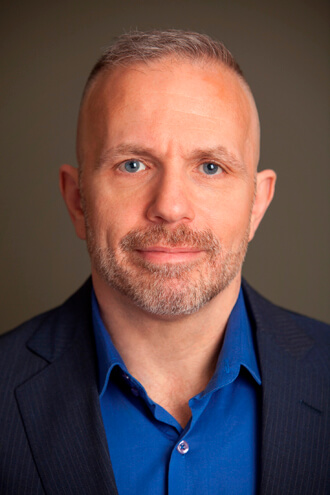Brian D. Earp. | TWITTER.COM/BRIANDAVIDEARP
The magnificent Dan Savage recently tweeted a link to a seriously complicated essay about, well, many things, especially the intolerance of ambivalence in contemporary political and social discourse. Written by Brian D. Earp and published on the website Quillette.com, which bills itself as “a platform for free thought,” the essay is a model of well-reasoned, high-level argumentation. Earp is no intellectual slouch: he’s been a research associate with the Oxford Centre for Neuroethics and a consultant working with the Institute for Science and Ethics at Oxford’s Martin School and is currently a resident visiting scholar at the Hastings Center Bioethics Research Institute in Garrison, New York.
Earp’s affiliation with Hastings provided some laughs for me, because during the height of the AIDS epidemic in the 1980s, I regularly mocked the Hastings Center in my media column in the New York Native for reasons I no longer recall. I was fully prepared to dismiss the brilliant Earp solely on the basis of his affiliation with Hastings; in other words, I was ready to reject his entire essay exactly for the reasons he so skillfully demolishes in his essay. And, oh by the way, he’s dreamy. An online bio contains this concluding statement: “Brian is also a professional actor and singer.” I urge you to check out this brilliant and talented hottie on YouTube. See him play Fagin in a production of “Oliver!”
Earp begins by quoting the historian of science and sex researcher Alice Dreger. “Once upon a time,” she writes, “we were allowed to feel ambivalent about people. We were allowed to say, ‘I like what they did here, but that bit over there doesn’t thrill me so much.’ Those days are gone. Today the rule is that if someone — a scientist, a writer, a broadcaster, a politician — does one thing we don’t like, they’re dead to us.”
MEDIA CIRCUS
I admit that this opening salvo got my back up a little bit; I’m tired of people complaining about political correctness (which is basically what Dreger is doing), especially when the complainer resorts to the passive voice as a way of avoiding specifics (“we were allowed”; allowed by whom? And more crucially, precisely who is no longer allowing it?) But Earp continues with a statement of his own, one I really couldn’t argue with: “I’m going to suggest that this development leads to another kind of loss: the loss of our ability to work together, or better, learn from each other, despite intense disagreement over certain issues. Whether it’s because our opponent hails from a different political party, or voted differently on a key referendum, or thinks about economics or gun control or immigration or social values — or whatever — in a way we struggle to comprehend, our collective habit of shouting at each other with fingers stuffed in our ears has reached a breaking point.”
The more I read, the more I found myself wondering if Brian Earp was perhaps the Messiah; his extraordinary intellect and generosity of spirit, not to mention his clear desire to encourage warring parties within the community of sex and gender activists to find common ground made me feel more optimistic about our movement making genuine progress than I’ve felt in a long time.
“Given the state of politics these days,” he goes on, “Dreger’s remarks could have been triggered by just about anything; but as it happens, she was reflecting on a controversial decision by the editors of Everyday Feminism, a popular online feminist magazine, to pull an essay of hers on sex education. The essay had earlier been published by Pacific Standard with the provocative title, “What If We Admitted to Children That Sex Is Primarily About Pleasure?”
“The essay wasn’t the problem,” Earp continues. “In fact, the editors liked the essay: they had reached out to Dreger to ask her permission to republish it, which is how this whole episode began. Instead, the problem was some other, unrelated material that Dreger had published elsewhere — a kind of ‘guilt by association’ with her own work [emphasis mine]. This is how the editors explained their decision (key bits in bold): ‘What happened was that we decided to pull the article from circulation shortly after it went up. When we asked permission [to republish it] we weren’t aware of some of the articles you’ve published on trans issues and after a reader brought it to our attention [we] looked into them.’”
Earp then explains the controversy: “If you aren’t familiar with Dreger’s work, you are probably wondering what she’s written about trans issues that the editors found so troubling — troubling enough to retract an unrelated essay. And if you are familiar with Dreger’s work, you are probably wondering even more. This is because Dreger is widely regarded as being a supporter of trans rights, as well as rights for intersex people, for gender non-conformers generally, and for other marginalized groups, all of which seems broadly consistent with the aims of Everyday Feminism.”
Please bear with me as I trace in broad strokes the essence of this complex argument:
Earp writes, “The story goes like this. Dreger has written, in her recent book and elsewhere, about a condition called ‘autogynephilia.’ If you haven’t heard of this condition, you are not alone; but it turns out to be really important. What it refers to is the tendency of certain individuals who were male-assigned at birth to be sexually aroused by the thought or image of themselves as a female. Some of these individuals later transition into being women, which is why this is relevant.”
“The problem is, some people, including some members of the trans community, strongly disagree with Dreger’s analysis of the scientific evidence on this condition. Just to be clear, Dreger does not do primary research in this area, but as a historian and sociologist of science and medicine, she has written at length about the work of those who do.”
“Although her primary interest has been to defend the right of these scientists to advance their views without being personally attacked — which has led to further attacks on Dreger herself — she also sometimes discusses the specifics of their theories. And while she doesn’t agree with everything they have to say, she sees their main conclusions as being pretty well supported.”
Earp continues, “One of these conclusions has become a lightning rod. That is the notion that the sexual arousal aspect of autogynephilia is not somehow tangential to the desire to transition, but is often directly causally related. Specifically, the idea is that “nonhomosexual transsexuals experience erotic arousal at the idea of becoming a woman, and this arousal motivates them to become women.
“Again, Dreger basically agrees with that idea (although she uses different terminology). Others, including the scientist and writer Julia Serano [who I have quoted admiringly in this column] (see here) and the psychotherapist and physician Charles Moser (see here) do not.
“I’m not going to drag you into the details of the science. Both of the critiques I’ve linked to are open access, and they do a good job of showing some of the more dubious features of autogynephilia research (which I agree has serious problems). You can make up your own mind about the strength of the critiques. Instead, I want to give you a sense of the differing perspectives behind the disagreement between Dreger and her most ardent critics.”
Earp then asks, “How does autogynephilia research fit into this? For one thing, it challenges the ‘gender essences’ narrative, which is a big part of why it’s so controversial. But it’s also controversial because, as some people see it, it is genuinely sloppy science.”
By “the ‘gender essences’ narrative, Earp means the stories trans folks tell to explain their desire to transition, many of which start out like this: “I felt like I was a woman trapped in a man’s body.” In these narratives, the notions of both woman and man are essentially essential — they presuppose that there are gender essences into which they do not fit. Hence the desire to transition.
Earp continues, “For example, Serano and Moser — the two critics I cited earlier — argue that the existing data on autogynephilic trans people just do not support the proposed model. According to their reading of the literature, although there is sometimes an erotic component to gender transition decisions, it is not usually a core part of the actual motivation. So the whole focus on sexual desire which characterizes Dreger’s account (and that of the scientists she defends), is in their view beside the point. In other words, from their perspective, it isn’t that trans people with autogynephilia are somehow denying their ‘true’ motivation for transitioning — in order to save face or to appease social conservatives — it’s that the motivation really isn’t primarily sexual.
“But so what if it is! says Dreger. This is typical of Dreger’s sex-positive attitude, and also reflective of her sex-positive politics, which I’ll expand on shortly. A developmental path shaped by sexual desire, she thinks, would be a ‘perfectly legitimate’ route for transitioning from assigned-male to female, and, in any event, her reading of the evidence suggests that it’s a real path, whether people find that politically convenient or not.
“Moreover, she says, ‘regardless of how someone becomes a woman, if she identifies as such, we owe her the respect of recognizing her identity and addressing her appropriately.’”
Earp then moves on to a brief digression about Germaine Greer, the feminist writer and theorist who turns out to be grossly anti-trans; she’s a problematic figure in the history of thinking about gender because she goes out of her way to deny that trans women are in fact women. For instance, she once wrote the following vile statement:
“On the day that ‘The Female Eunuch’ [Greer’s book] was issued in America, a person in flapping draperies rushed up to me and grabbed my hand. ‘Thank you so much for all you’ve done for us girls!’ I smirked and nodded and stepped backwards, trying to extricate my hand from the enormous, knuckly, hairy, be-ringed paw that clutched it… I should have said, ‘You’re a man. “The Female Eunuch” has done less than nothing for you. Piss off.’ The transvestite [sic] held me in a rapist’s grip.”
I suspect that many of us would, upon learning that Greer was scheduled to speak at our college or university, attempt to shut the event down. Why should such a pig be granted a forum on any subject?, we might ask.
But that’s precisely the problem, Earp writes: “So what does this mean in practical terms? For one thing, it means that even if you disagree with, say, Alice Dreger’s stance on autogynephilia, you still might try to see if you — or your readers — could learn something from her work on sex education. Similarly, despite her harsh rhetoric and uncompromising beliefs about trans identity, you could try being open to the idea that Germaine Greer — a pioneering figure in the fight against patriarchy — might have something important to say about women and power in the 20th century.
“Publishing an essay on your website doesn’t mean that you endorse every other word the author has ever written. And letting someone speak at your university on subject X doesn’t mean that you agree with their views on subject Y.
“‘I like what they did here,’ you might say, ‘but that bit over there doesn’t thrill me so much.’
“Scott Fitzgerald once wrote that the sign of a first-rate intelligence ‘is the ability to hold two opposed ideas in mind at the same time and still retain the ability to function.’ I think there’s a lesson in that sentiment for this debate. Maybe we should say that the sign of a first-rate social justice campaigner is the ability to engage with, and even learn from, someone they really disagree with on some issue, and still retain the ability to pursue their righteous cause.”
Earp concludes, “In fact, I think this first ability (engagement) can help improve the second ability (pursuing justice), directly. This is because, when we take the time to acknowledge that there might be a valid insight at work in someone’s view — even if we ultimately reject that view for legitimate reasons — we often discover an element of nuance in our own position that we hadn’t picked up on before. This, in turn, can increase the chance that our position will better approximate the truth, as well as appeal to other people besides the ones who already agree with us.
“Preaching to the choir never did do much to change the world. And isn’t breaking down conventional categories, in large part, what ‘young feminism,’ trans activism, and even trans identity, are all about?”
Anyone interested in forming a Brian Earp cult should contact

































